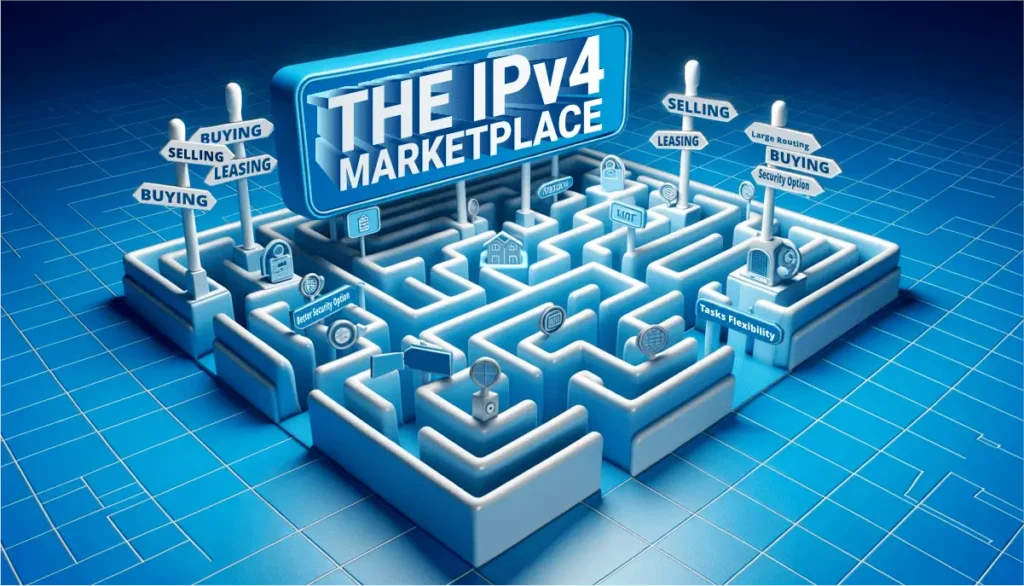Table of Contents
On the internet, IP addresses are important for communication across borders. IP addresses are like the digital coordinates that enable devices to find each other across the vast expanse of the web.
As the demand for these digital addresses continues to grow, so does the need for innovative solutions to meet this demand. Can you buy an IP address from another country through an IP address auction? In this article, we’ll talk about IP address auctions, buying IP addresses across borders, and what it means for the internet.
IP address auctions: A brief overview
Before delving into the cross-border aspect, let’s first understand what IP address auctions entail. IP address auctions have gained popularity as a means to address the scarcity of IPv4 addresses. IPv4 is the most common version of IP. It has 32-bit addresses, allowing for about 4.3 billion unique addresses. With the explosion of internet-connected devices, this pool of addresses is quickly depleting.
To meet the increasing need for IP addresses, organizations like ARIN and RIPE NCC have started using IP address auctions. These auctions allow organizations to buy IPv4 address blocks directly from other entities that possess surplus addresses they no longer need. This process, often referred to as “purchase IPv4,” has become a lifeline for companies seeking to expand their online presence.
Cross-border IP purchases: is it possible?
Now, let’s address the question at the heart of this article: Can one buy an IP address from another country? The short answer is yes, but the process isn’t without its complexities.
In IP address auctions, the “seller” and “buyer” can indeed be located in different countries. The internet doesn’t respect geographical boundaries, and IP addresses are a global resource. However, while it’s technically feasible to purchase IP addresses from another country, there are several factors to consider:
Regional Internet Registries (RIRs)
RIRs are the organizations responsible for the distribution and management of IP address resources within specific regions. For example, ARIN handles North America, while RIPE NCC serves Europe and the Middle East. Each RIR has its policies and procedures for IP address allocations. When purchasing IP addresses from another country, you must adhere to the policies of the seller’s respective RIR.
Transfer process
Transferring IP addresses between entities, especially across borders, involves a stringent process. Both the seller and the buyer need to follow the RIR’s guidelines and documentation requirements. To simplify the language of the sentence, you can split it into several shorter coherent sentences.
The process entails explaining the reason for the transfer. It also involves checking the legality of the transaction. Additionally, the Regional Internet Registry (RIR) updates its records with the new IP address owner.
IPv4 address blocks
Internet Service Providers often allocate IP addresses in blocks, typically ranging from a few addresses to thousands. When purchasing IP addresses from another country, you’ll likely be acquiring a block of addresses. It’s crucial to assess your actual needs to avoid over-purchasing or under-purchasing IP address resources.
IP leasing
In some cases, companies opt for IP leasing rather than outright ownership. IP leasing allows organizations to temporarily use IP addresses without going through the transfer process. However, these leased addresses still fall under the policies of the RIR governing the region where the IP addresses are registered.
The benefits and challenges of cross-border IP purchases
Buying IP addresses from another country can offer several advantages
1. Address Scarcity Mitigation: It helps alleviate the scarcity of IP addresses in regions where demand exceeds supply.
2. Efficient Expansion: Organizations can quickly expand their online presence and infrastructure by acquiring additional IP address resources.
3. Marketplace Flexibility: IP address auctions provide a marketplace where buyers and sellers can negotiate terms, making it more flexible than traditional allocation methods.
However, there are challenges to consider
1. RIR Policies: Adhering to the policies of multiple RIRs can be complex, and violations may result in the revocation of IP address resources.
2. Regulatory Compliance: Cross-border transactions may involve compliance with international regulations and taxation laws.
3. Costs: Acquiring IP addresses through auctions can be costly, with prices varying based on demand and the specific block of addresses.
The global nature of IP addresses
In summary, the internet operates on a global scale, and IP addresses are a shared global resource. This means that buying IP addresses from another country is technically feasible, thanks to IP address auctions. However, it’s essential to navigate the complexities of regional internet registries, adhere to their policies, and ensure that your IP address acquisitions align with your organization’s needs and growth plans.
As the demand for IP addresses continues to rise, the world of IP address auctions will remain a dynamic and evolving space. Whether you’re a business looking to expand your online presence or an individual interested in the intricate workings of the internet, understanding the ins and outs of cross-border IP purchases is a valuable piece of knowledge in our interconnected world.





